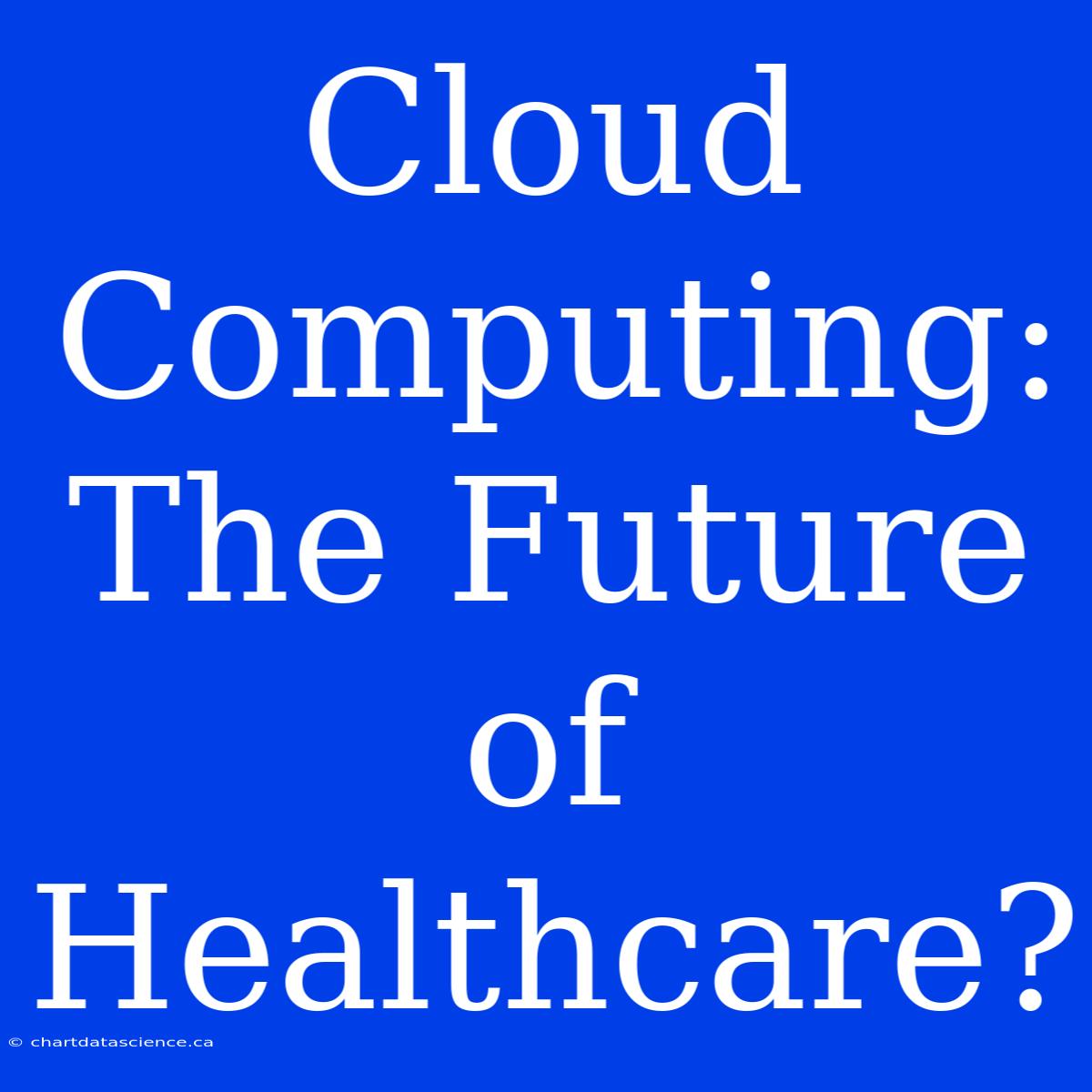Cloud Computing: The Future of Healthcare?
The healthcare industry is undergoing a massive transformation, and cloud computing is at the forefront of this revolution. From managing patient records to analyzing medical data, cloud services are becoming increasingly vital in improving healthcare delivery and patient outcomes. But is cloud computing truly the future of healthcare? Let's dive in and explore how this technology is shaping the healthcare landscape.
The Advantages of Cloud Computing in Healthcare
Cloud computing offers a plethora of benefits for healthcare providers and patients alike. Here are some of the key advantages:
- Enhanced Data Security: Cloud providers like AWS, Azure, and Google Cloud offer robust security measures, protecting sensitive patient data from breaches and cyberattacks. This is crucial in an industry where data privacy is paramount.
- Improved Accessibility: With cloud-based systems, healthcare professionals can access patient data and medical records from anywhere with an internet connection. This facilitates seamless collaboration and faster decision-making, regardless of location.
- Cost-Effectiveness: Cloud computing eliminates the need for expensive hardware and infrastructure, allowing healthcare providers to save on capital expenditure. Pay-as-you-go models also offer significant cost savings compared to traditional IT systems.
- Scalability and Flexibility: Cloud platforms are highly scalable, allowing healthcare organizations to easily adjust their computing power based on changing demands. This ensures optimal performance even during peak periods or when handling large datasets.
- Innovation and Analytics: Cloud-based platforms enable the use of advanced analytics and AI tools for better disease prediction, personalized treatment plans, and proactive patient care.
Real-World Applications of Cloud Computing in Healthcare
Cloud computing is already making a significant impact on healthcare in various ways:
- Electronic Health Records (EHRs): Cloud-based EHR systems simplify record management, improve data accuracy, and facilitate secure patient data sharing among healthcare providers.
- Telemedicine: Cloud platforms enable remote patient consultations, monitoring, and diagnosis, expanding access to healthcare services in underserved areas.
- Clinical Research: Cloud computing empowers researchers to analyze vast datasets, identify new treatments, and accelerate drug discovery.
- Medical Imaging: Cloud storage and analysis capabilities enable faster and more efficient processing of medical images, facilitating faster diagnosis and treatment.
Challenges and Considerations
Despite the numerous benefits, implementing cloud computing in healthcare presents some challenges:
- Data Security Concerns: Maintaining data privacy and security in the cloud remains a top concern. Healthcare organizations need to carefully choose cloud providers with robust security protocols and comply with regulations like HIPAA.
- Interoperability: Seamless integration of different cloud-based healthcare applications is essential for effective data sharing and workflow optimization.
- Cost and Complexity: While cloud computing can be cost-effective, migrating existing systems and managing cloud infrastructure can be complex and require specialized expertise.
The Future of Healthcare with Cloud Computing
The future of healthcare is undeniably linked to cloud computing. As technology advances, we can expect to see even more innovative applications emerge, including:
- AI-powered diagnostics: Cloud-based AI algorithms can analyze patient data and identify potential health risks early on.
- Personalized medicine: Cloud platforms will enable customized treatment plans based on individual patient data and genetic information.
- Wearable devices: Integration of wearable technology with cloud platforms will allow for real-time monitoring of patient health and proactive care.
Conclusion
Cloud computing has the potential to revolutionize healthcare, offering significant advantages in terms of data security, accessibility, cost-effectiveness, and innovation. While challenges remain, the benefits far outweigh the drawbacks. By embracing cloud technology, the healthcare industry can pave the way for a future of personalized, efficient, and accessible care for everyone.

